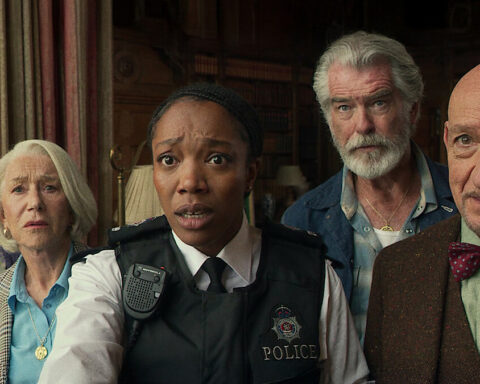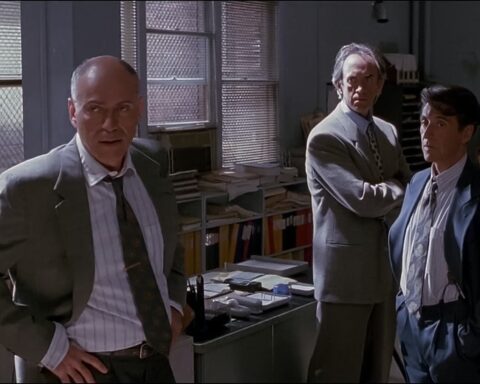At the end of Alex Ross Perry’s latest film, Listen Up Phillip, Phillip Friedman (played perfectly by Jason Schwartzman) arrives at his old apartment to move back in with the girlfriend who has made it clear on multiple occasions that their relationship is over. When his key doesn’t work in the new lock, he shouts to her behind the door, “My key is broken!” This might seem like a final pathetic attempt to salvage a relationship, but for Phillip, it’s just part of the false reality he has created to put himself at the top.
Perry begins his film with a miniaturized version of the whole plot as Phillip invites an ex-girlfriend to lunch, only to berate her for never letting him reach his full potential, claiming that he was going to give her a copy of his book, but now, because she was late to this lunch (a reason for their original breakup and, therefore, unforgivable), he refuses to give it away. Next, he visits his college roommate, Parker, and shows him their declaration of principles from when they both planned to be writers. Again, Phillip tears Parker apart for falling behind.
The comedy of watching Phillip use his own success as a weapon is enough to get through these scenes without cringing, but is it enough to get through the whole film? As Phillip enters new relationships and tears down old ones, his unlikability grows to a point that any sane moviegoer might not choose to withstand. The saving grace is Ike Zimmerman (Jonathan Pryce at his best) who gives us the chance to see how much worse Phillip could be. Zimmerman, a famous author who has been writing long enough to have his first comeback in the 80’s, reads Phillip’s new book and immediately sets about trying to craft this new pupil in his image. Phillip’s willingness to submit finally his human side as he learns the basic guidelines to care for his blossoming ego. The relationship between the two writers and the destructiveness of this level of disconnection from society is seen through the eyes of Melanie (Krysten Ritter), zimmerman’s daughter, whose one attempt at human kindness with Phillip is shot down.
Perry’s ability to move between narratives, from Phillip to Ike to Phillip’s long-suffering girlfriend Ashley to his new girlfriend Yvette, keeps us from getting dragged down by the protagonist’s scorched-earth method of dealing with relationships. Ashley’s (Mad Men’s Elisabeth Moss) narrative, for example, rounds out the story with a fascinating look at how she rebuilds herself after being torn apart emotionally by Phillip. After she’s chosen to leave him, she tries to go pick up a guy at a bar, she gets a cat, then she visits her sister, and finally she goes out to the park with some new friends to fly a kite. The title of the film acts as a cry to the main character to care about what he’s doing to everyone around him. To Perry’s benefit, Phillip never listens. It would be easy to have a third-act turn-around where Phillip seeks forgiveness for all the wrongs he’s done. But it’s much more satisfying to have him go on to a successful career with no hope of emotional connection. The audience might even get a smug sense of pride, knowing that they would never react as Phillip does when he reads about the suicide of another young writer and claims to be glad he killed himself but displeased that he didn’t get the last interview with him as planned.
The film takes us gleefully to the extent of ego and then leaves Phillip, not in his promised summer home or professorial office, but on the street in the cold, trying to carry his luggage back to his car at what the narrator calls the lowest point in his adult life. That’s where Phillip deserves to live forever, in the purgatory of an eternal reminder that he is an awful person. Of course, that sort of thinking on my part might be more in line with Phillip than I care to admit.







